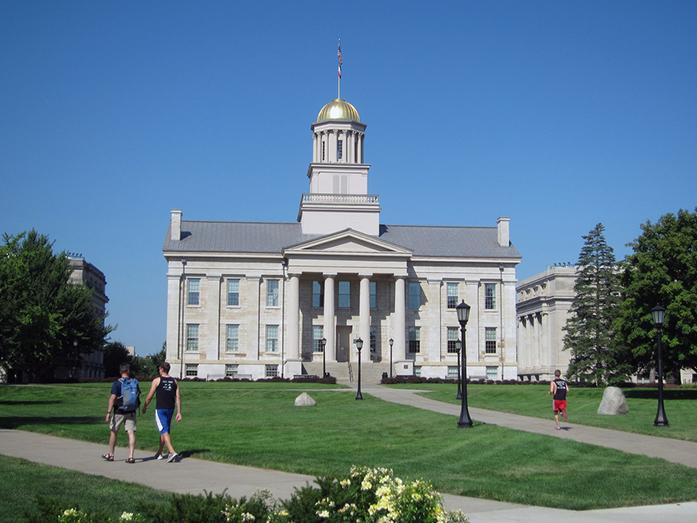By Tom Ackerman | [email protected]
Graduate students could soon see tax breaks as an incentive to stay in the state a little longer.
The University of Iowa Graduate and Professional Student Government is advocating for legislation that would reduce taxes for graduate students willing to live in Iowa for another five years.
The incentive would relieve 50 percent of income taxes for graduate students employed in the state. Graduate students choosing to reside in a rural area would see their taxes reduced by 75 percent.
“What we’re hoping for right now is that [Gov. Terry Branstad] is going to put this in his education budget for next year,” GPSG president Joshua Schoenfeld said. “That’s the goal right now.”
Advocates for the plan say the idea is mutually beneficial to both the state and students, offering aid to those with heavy debt while also supplying communities statewide with professionals in their fields.
“Time and time again, Iowa will face brain drain. That’s the key term,” said Hannah Walsh, a former regent and current delegate in GPSG.
Brain drain, in this case students receiving an education and taking their skills outside of the state, continues to be a problem.
The problem causes hesitation for those in charge of funding education at the UI, Walsh said.
“Again and again I hear legislators say, OK, yes, we understand why it’s important to invest in you, but especially at the UI, we invest in you and then you leave the state,” she said.
The proposal, which the state Board of Regents will look at this week, could earn state money by keeping more people in the area, Schoenfeld said.
“After about 12 years, it would even become profitable for the state, so it wouldn’t actually cost the state anything in the long run,” he said. “It would keep more people here after the incentive ended.”
Schoenfeld said the idea has been in the works for four or five years, though the GPSG delegation this year decided to take action.
“Even as a small percentage, a quarter of the people said they would maybe be incentivized,” Schoenfeld said, referencing data from a statewide survey of graduate students conducted by the GPSG.
The survey asked graduate and professional students how they would respond to a financial offer to stay in Iowa, which was given to students at the UI, the University of Northern Iowa, Iowa State University, and other schools.
The motivation to propose the change comes from a substantial wage gap compared with other states that causes concern for graduate students coming out of college.
The widest gap lies in the medical fields, Schoenfeld said. The average cost of education for many health-care fields comes to around $200,000, he notes.
He said while graduate students generally make more money, they often make less in Iowa than in other states.
“I think if we can get students to stay here after graduation, that is going to be incredibly beneficial to the quality of life,” Walsh said.
However, not all graduate students agree that the proposal will make for needed change.
“A lot of us are feeling pretty dubious, actually,” said Ruth Bryant, press and publicity head for the Campaign to Organize Graduate Students, a union for teaching and research assistants at the UI.
Bryant said many students find issue with the current fees they pay to work and study at the UI.
“I don’t foresee there being many job opportunities in Iowa as in other states,” Bryant said.
“Incentivizing it with these tax breaks would not fix the real problem.”
For the GPSG’s current approach, it will look to gain support among legislators and the Governor’s Office to include it in the state budget.
GPSG has spoken with several legislators already who are in favor. If they gain support, the proposal could become a reality in a year or two, Schoenfeld said.
“We’ve talked to Democrats and Republicans and everyone seems interested,” Schoenfeld said. “This could be something that happens quickly.”







